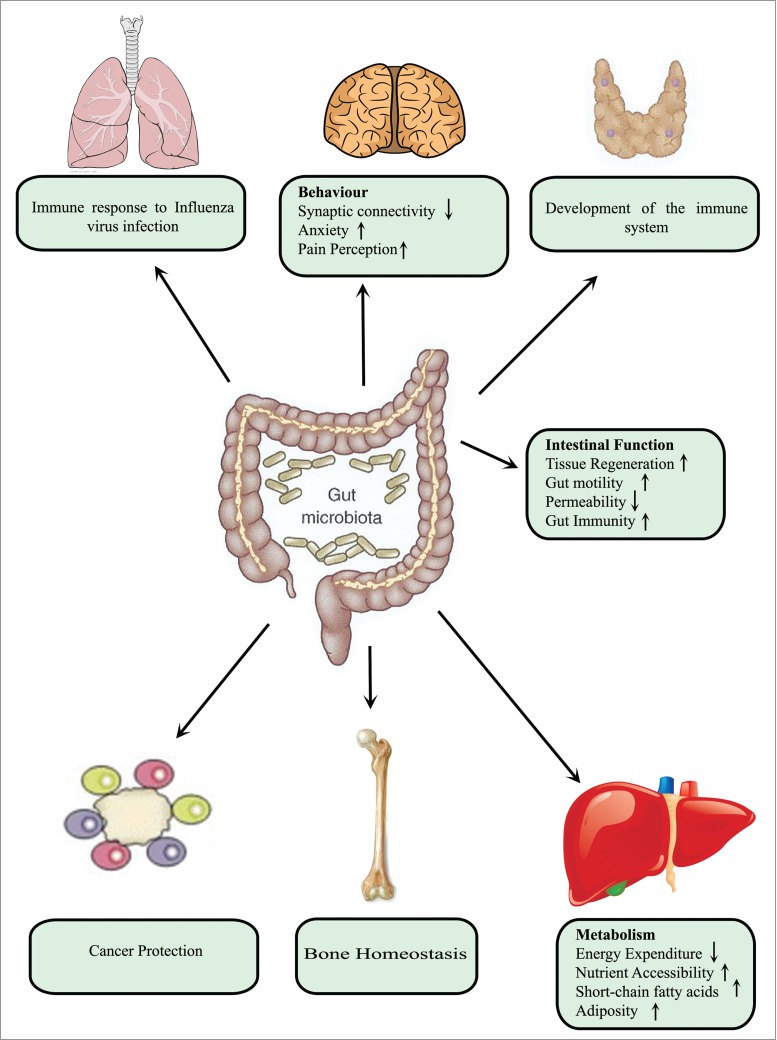Figure 5.

Microbial impact on host physiology. Microbiota in the intestinal tract exerts profound effects on host physiology, both locally and at distant sites. Locally, these bacteria enhance gut immunity and motility as well as reducing intestinal permeability. At distant sites, such as the lungs, they regulate immune defense against viral infection. In the case of the brain, they may influence behavior by decreasing synaptic connectively and increasing anxiety and perception of pain. Moreover, they modulate hepatic metabolism in a manner that decreases energy expenditure and promote adiposity. In addition, absence of gut microbiota leads to more bone mass in association with fewer osteoclasts per surface area of bone.
